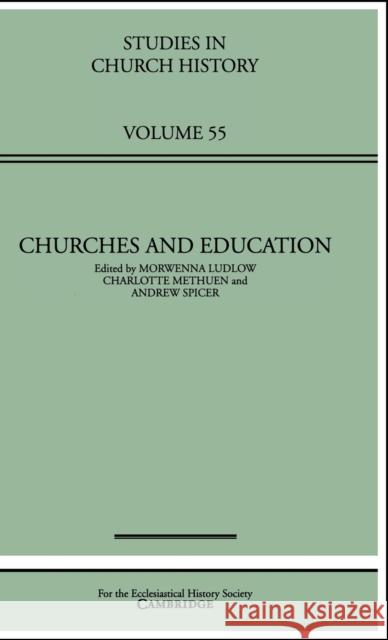


ISBN-13: 9781108487085 / Angielski / Twarda / 2019 / 628 str.
ISBN-13: 9781108487085 / Angielski / Twarda / 2019 / 628 str.
Brings together the work of a wide range of scholars to explore the history of churches and education.
Introduction; 1. Education and pleasure in the early church: perspectives from East and West (Presidential Address); 2. Dialogue in the monastery: hagiography as a pedagogical model; 3. 'Instructing readers' minds in heavenly matters': Carolingian history writing and Christian education; 4. Penitential manuscripts and the teaching of penance in Carolingian Europe; 5. Educating the local clergy, c.900–c.1150; 6. Prelacy, pastoral care and the instruction of subordinates in late twelfth-century England; 7. 'I found this written in the other book': learning astronomy in late Medieval monasteries; 8. Peter Canisius and the development of Catholic education in Germany, 1549–97; 9. Nature and nurture in the early Quaker movement: creating the next generation of Friends; 10. Convent schooling for English girls in the 'exile' period, 1600–1800; 11. Preachers or teachers? Parish priests and their sermons in the late Enlightenment Habsburg Empire; 12. Danish catechism in action? Examining religious formation in and through Erik Pontoppidan's Menoza; 13. 'The glory of the age we live in': Christian education and philanthropy in eighteenth-century London charity schools; 14. Catechizing at home, 1740–1870: instruction, communication and denomination; 15. Saving souls on a shoestring: Welsh circulating schools in a century of change; 16. The political dimension of the education of the poor in the National Society's Church of England schools, 1811–37; 17. Schools for the poor in mid-nineteenth-century Devon: towards an explanation of variations in local development; 18. They 'come for a lark': Ragged School Union teaching advice in practice, 1844–70; 19. Religious and industrial education in the nineteenth-century Magdalene asylums in Scotland; 20. Scottish Presbyterianism and the national education debates, 1850–62; 21. Exporting godliness: the Church, education and 'higher civilization' in the British Empire from the late nineteenth century; 22. Conversion and curriculum: Nonconformist missionaries and the British and Foreign School Society in the British West Indies, Africa and India, 1800–50; 23. The rise, success and dismantling of New Zealand's Anglican-led Māori education system, 1814–64; 24. 'The one for the many': Zeng Baosun, Louise Barnes and the Yifang School for Girls at Changsha, 1893–1927 (Kennedy Prize); 25. British world Protestant children, young people, education and the missionary movement, c.1840s–1930s; 26. 'In perfect harmony with the spirit of the age': The Oxford University Wesley Guild, 1883–1914; 27. Churches and adult education in the Edwardian era: learning from the experiences of Hampshire Congregationalists; 28. 'The catechism will save society, without the catechism there is no salvation': secularization and catholic educational practice in an Italian diocese, 1905–14; 29. 'War to the knife'? The Anglican clergy and education at the end of the First World War; 30. Fighting the tide: church schools in south Buckinghamshire, 1902–44; 31. British Sunday Schools: an educational arm of the churches, 1900–39; 32. Western establishment or Chinese sovereignty? The Tientsin Anglo-Chinese college during the Restore Educational Rights Movement, 1924–7 (President's Prize); 33. The British Council of Churches' influence on the 'radical rethinking of religious education' in the 1960s and 1970s.
1997-2026 DolnySlask.com Agencja Internetowa







